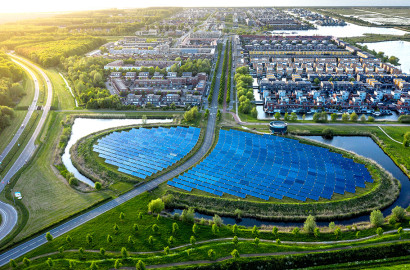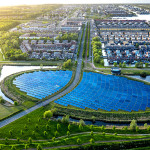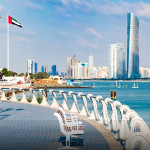The meeting of the Executive Council sets aside funding for key initiatives, with an emphasis on promoting a sustainable community environment

His Highness Sheikh Khaled bin Mohamed bin Zayed Al Nahyan, Crown Prince of Abu Dhabi and Chairman of the Abu Dhabi Executive Council, has approved a budget of more than US $17.7bn for new capital projects – and also gave directives to advance the Emirati culture and heritage ecosystem in Abu Dhabi.
The go-ahead for the 2024 budget came at the council’s meeting, which was being chaired by Sheikh Khaled.
During the meeting, he gave directives to focus efforts on conserving Emirati heritage and upholding national identity by increasing awareness of national traditions, and by empowering local talent within the sector to help embed UAE cultural heritage among young people.
Sheikh Khaled emphasised that the leadership is continuing to prioritise and activate projects that drive infrastructural development to foster a sustainable community environment and ensure the stability and cohesion of Emirati society.

A series of new directives were also announced, which aim to further develop a sustainable cultural heritage ecosystem in the emirate by building on the success of current exhibitions, festivals, and heritage programmes.
The Crown Prince explained, “Preserving national heritage and fostering Emirati traditions springs from a deep-rooted belief that heritage is essential for building both the present and the future.” He added that these measures aim to build a future in which the nation’s cultural heritage is a source of pride and inspiration for all.
Later in the agenda, Sheikh Khaled was briefed on plans to establish the Abu Dhabi Hazardous Materials Management Centre, which aims to develop a framework for effectively handling hazardous materials. The centre also aims to ensure co-ordination among the relevant authorities to further enhance planning and response efforts to manage hazardous materials in line with best international practices.
Related posts:
Industry leaders predict that even in 2024, supply will fall short of demand because of the large influx of foreigners and residents who are becoming buyers due to rising rental costs.
The third edition will discuss the handling of construction and demolition waste, waste-to-energy facilities and more


 Most affordable areas in Dubai revealed
Most affordable areas in Dubai revealed
 Dubai’s population growth is outpacing its property supply by a wide margin
Dubai’s population growth is outpacing its property supply by a wide margin
 2024 Energy & Sustainability Summit to take place on 7 March
2024 Energy & Sustainability Summit to take place on 7 March
 Abu Dhabi allocates US $17.7bn for new projects
Abu Dhabi allocates US $17.7bn for new projects
 Dubai property market tops $6.6bn in August
Dubai property market tops $6.6bn in August